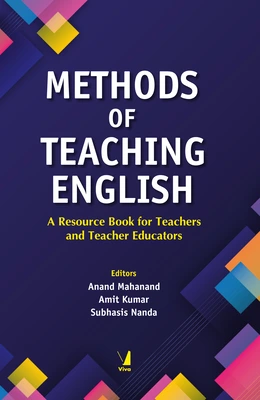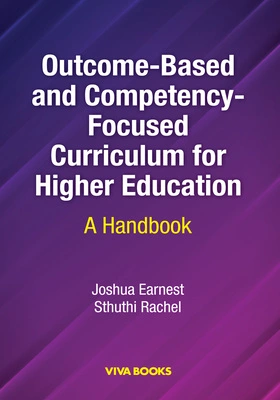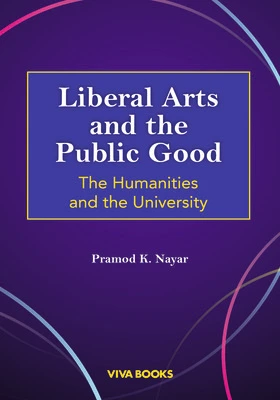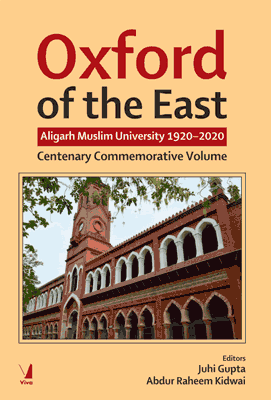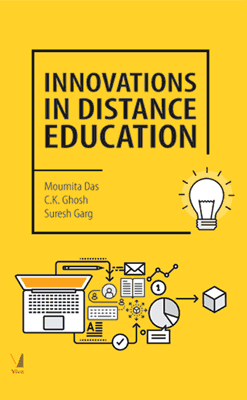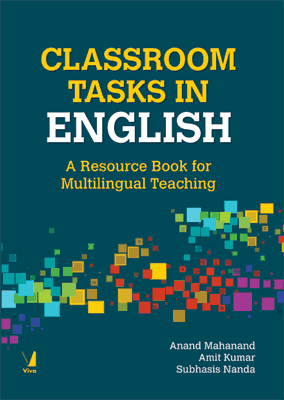Best Books for English Teachers
Methods of Teaching English
A Resource Book for Teachers and Teacher Educators
₹715.50 ₹795.00 Save: ₹79.50 (10%)
Go to cartISBN: 9789393329981
Bind: Paperback
Year: 2023
Pages: 320
Size: 6 x 9 Inch
Publisher: Viva Books Originals
Sales Territory: Worldwide
Description:
The National Education Policy 2020 proposes a robust teacher training programme. Teachers are needed to be aware of the current trends, approaches and learners’ needs, besides having subject expertise, so that they can prepare students for the demands and challenges of the academic and professional world. This book addresses these key needs of teacher trainees and educators. It provides a general idea about the status of English in India with its origin and present functions. It also elaborates the approaches and methods of teaching English. Also included here is the right practical guidance for teaching different language skills and aspects of language. The book has been prepared keeping in mind the education syllabi of major universities. Another important feature of this book is that it has components that will prepare learners for research.
Target Audience:
For teachers and teacher educators.
Contents:
Preface
Chapter 1. The Position of English in Society (Anand Mahanand) • Nature, Importance and Function of Language in Society • Introduction • Activity • The Nature of Language • Importance and Functions of Language in Society • Check Your Progress • Summing Up • The Role of English: As a Link Language, Academic Language and Global Language • History of the English Language • English as a Global Language • Variety of English or World Englishes • The History of English in India • Wood’s Dispatch • English in Post-Independent India • Check Your Progress • Summing Up • Aims and Objectives of Teaching English • Landmarks in the History of ELT in India • English as a Second Language • English in Multilingual Contexts • Three-Language Formula • The Teaching and Learning of English: The Present Scenario • Some Suggestions for Effective Teaching and Learning • Check Your Progress • Summing Up
Chapter 2. English Language Education in Indian Contexts (Subhasis Nanda) • Understanding Language Learning and Acquisition • Language Acquisition • Language Learning • Interrelationship Between Acquisition and Learning • Second Language Acquisition • Defining Second Language Acquisition • Five Stages of Second Language Acquisition • Understanding a Second Language Learner • Language Learning Strategies • Cognitivism and Second Language Acquisition • Definition of Cognitivism • Principles of Cognitivist Paradigm • Cognitive Theories • Piaget’s Cognitive Development Vygotsky’s Sociocultural Theory (1896-1934) • The Information Processing Approach • Bruner’s Constructivist Theory • Modes of Representation • Three Modes of Representation • Social Interactional Theory in SLA • Krashen’s Hypothesis of Second Language Acquisition • Natural Approach • Theoretical Basis of the Natural Approach • Cummins’ Theory of Second Language Acquisition • Basic Interpersonal Communication Skills (BICS)/Cognitive Academic Language Proficiency (CALP) • Common Underlying Proficiency • Task Difficulty • Check Your Progress • Multilingualism • Types of Bi/Multilingualism • Pre-Reading Questions • The Role of First Language Knowledge in Second Language Acquisition • Language Transfer • Importance of Language Transfer • Interlanguage • Theory of Interlanguage • Conclusion
Chapter 3. Methods and Approaches (Amit Kumar) • Activity • Introduction • The Structural Approach • Conclusion • Check Your Progress • Grammar-Translation Method • Conclusion • Check Your Progress • Direct Method • Conclusion • Check Your Progress • Communicative Language Teaching • Conclusion • Check Your Progress • The Functional Approach • Conclusion • Check Your Progress • Summing Up
Chapter 4. Innovative Teaching of Language Skills and Aspects (P. Ravi Kumar) • Introduction • Activity • Communicative Language Teaching • Listening Skills • Introduction • Lesson Plan • Task Objectives • Stage-Wise Lesson Plan • Task Description • Check Your Progress • Summing Up • Speaking Skills • Lesson Plan • Task Description • Task Objectives • Sample 1 • Check Your Progress • Summing Up • Reading Skills • Introduction • Reading-1 (Basic Comprehension) • Learners’ Description • Task Description • Objectives • Lesson Plan • Check Your Progress • Summing Up • Writing (Argumentative Essay) • Lesson Objectives • Introduction • Materials Used • Stage-Wise Lesson Plan • Check Your Progress • Summing Up • Grammar • Introduction • Lesson Plan • Introduction • Skill/Component • Task Description • Materials Used • Stage-Wise Lesson Plan • Check Your Progress • Summing Up • Vocabulary • Importance of Vocabulary Acquisition • Teaching of Vocabulary • Lesson Plan • Task Description • Teaching Objectives • Check Your Progress • Summing Up • Appendices
Chapter 5. Teaching Prose, Poetry and Composition (Anand Mahanand) • Introduction • Activity • Role of Literature in Developing Language Skills • 1. Literary Texts are Motivating • 2. Facilitate Cultural Literacy • 3. Facilitate Language Acquisition • 4. Facilitate Language Awareness • 5. Facilitate Students’ Interpretative Skills • 6. Suggestive Power • 7. Value Education • 8. Universal Appeal • 9. Literary Texts are Authentic • 10. Variety of Materials • Check Your Progress • Summing Up • Teaching Prose • How to Teach a Prose? • Check Your Progress • Summing Up • Teaching Poetry • 1. Precision • 2. Suggestive Power • 3. Deviant Language • Advantages of Using a Poem • How to Teach a Poem? • Check Your Progress • Summing Up • Teaching Composition • Introduction • Stages of Teaching Composition • Teaching Writing a Short Story • Through Guided Writing • Through Inputs • Teaching Writing a Poem • Elements of Poetry • Theme • Some More Sample Tasks • How to Teach Writing a Poem? • Check Your Progress • Summing Up
Chapter 6. Pedagogical Analysis (P. Ravi Kumar) • Activity • Introduction • What is Teaching? • Check Your Understanding • Aims and Objectives of Teaching English • Content Analysis • Objectives of the Textbook • Facilitating Teaching-Learning Process • Exercises • Vocabulary • Lesson Planning • Steps of Pedagogical Analysis • The Learning Outcome • The Learning Experience • Evaluation
Chapter 7. Teaching Aids and Instructional Materials (Amit Kumar) • Activity • Introduction • Understanding a Lesson Plan • Stages for Preparing a Lesson Plan • Some Strategies for Developing a Practical Timeline • Components of Teaching a Lesson • Stages of a Lesson Plan • Check Your Progress • Aids and Materials for Language Teaching and Learning • Definitions • Need of Teaching Aids and Instructional Materials • Purposes of Teaching Aids and Instructional Materials • Types and Skills Specific Applications of Teaching Aids and Instructional Materials • Benefits of Teaching Aids and Instructional Materials • Selection of Teaching Aids and Instructional Materials • Check Your Progress
Chapter 8. Evaluation (Mahananda Pathak) • Introduction • Activity • Tests, Evaluation and Assessment: A Discussion • Check Your Progress • Summing Up • Summative Assessment • Formative Assessment • Check Your Progress • Summing Up • Alternative Forms of Assessment • Check Your Progress • Summing Up • Meaning and Significance of Continuous and Comprehensive Evaluation • Check Your Progress • Summing Up
Chapter 9. Current Trends in ELT (Amit Kumar) • Activity • Introduction • A. Collaborative Learning • Check Your Progress • B. Cooperative Learning • Check Your Progress • C. Flipped Classroom • Conclusion • Check Your Progress
Chapter 10. Research Projects in ELT (Anand Mahanand) • Writing a Research Proposal • Introduction • Research Proposal • Activity • Features of a Research Proposal • Some Important Aspects of a Proposal • Check Your Progress • Check Your Progress • Summing Up • Writing a Research Project Report • Objectives • Introduction • Components of a Project Report • Activity • Acknowledgements • Abstract • Contents • Introduction • Methodology • Data Analysis • Conclusion • Recommendations • Check Your Progress • Summing Up • Writing a Research Paper • Objectives • Introduction • Activity • Check Your Progress • Processes of Writing a Paper • Sample of a Questionnaire • Analysis of Data • Check Your Progress • Summing Up
About the Editors
About the Editors:
Anand Mahanand is a Professor in the Department of Materials Development, Testing and Evaluation, The English and Foreign Languages University (EFLU), Hyderabad. He is interested in the pedagogical aspects of English literature and language. He has designed materials for EFLU, IGNOU and for Dr. B.R. Ambedkar Open University, Hyderabad. He has authored/co-authored/edited/co-edited and translated more than thirty books. His important publications include English through Folktales, Folktales for Pleasure Reading, Representations of Tribal India in Fiction: Imagining the ‘Other’, Lo(k)cal Knowledge, English for Academic and Professional Skills and Literature for Language Skills. He has translated two collections of folk tales and two collections of short stories and some of the texts of Gopinath Mohanty, Pratibha Ray and Ruskin Bond. He is the Executive Editor of Lokaratna, an international online journal devoted to folklore, literature and pedagogy.
Amit Kumar is an Assistant Professor of English at GITAM (Deemed-to-be University), Hyderabad. He completed his Ph.D. and M. Phil. in English Language Education from The English and Foreign Languages University (EFLU), Hyderabad, India. His areas of interest includes English for academic purposes, English for specific purposes, collaborative learning, methods and materials of teaching English and bi/multilingualism. He has authored two books entitled Learning to Learn: Study Skills in English and Classroom Tasks in English: A Resource Book for Multilingual Teaching. Additionally, he has published some research papers in peer-reviewed journals and developed contents for BRAOU, RIE and NCERT.
Subhasis Nanda is an Assistant Professor of English at GITAM (Deemed-to-be University), Hyderabad. He received his Ph.D. in English Language Education (ELE) from The English and Foreign Languages University (EFLU), Hyderabad. He also did his B.Ed. (English), PGDTE and M.Phil. in ELE at the same university. He is interested in teaching materials for underachieving learners, teaching English in multilingual contexts, cognitive and meta-cognitive skills in language learning and transfer of language skills. He has presented several papers in seminars and conferences of national and international reputation and has published research papers in many national and international journals. He has also co-authored some books in the field of ELT.
